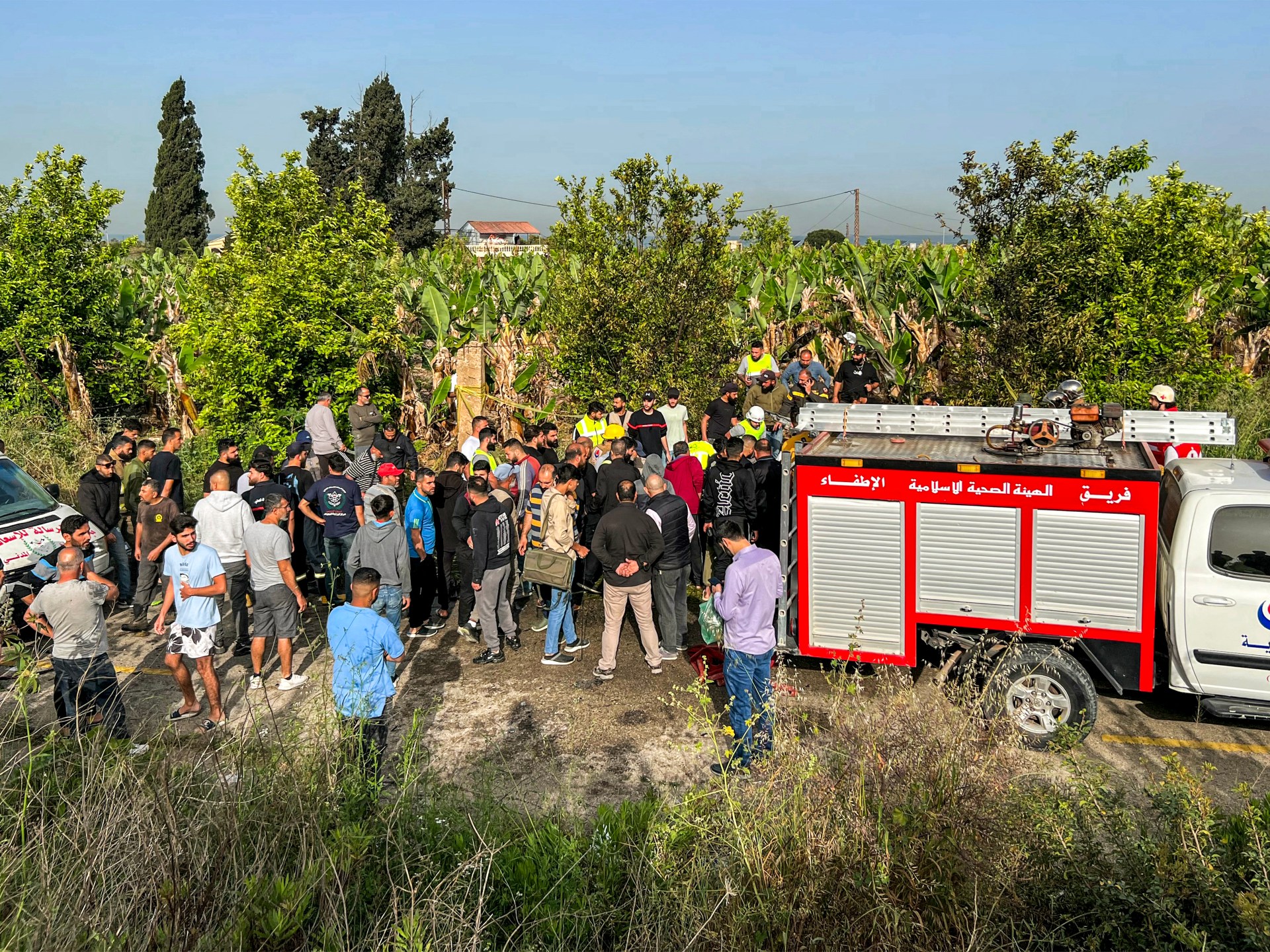Hezbollah dismisses Israeli claim that it has killed half of the group’s commanders in southern Lebanon.
The Israeli military says it hit dozens of targets in southern Lebanon while the Lebabese armed group Hezbollah said it fired dozens of rockets at an Israeli border village as fighting continues to escalate.
The Israeli military said the strikes in the area of Aita al-Shaab, about 3km (1.9 miles) inside the Lebanese border, hit around 40 targets including storage facilities and weapons in an area it said was used extensively by Hezbollah forces.
“There is continuous offensive action by [Israeli military] forces in all of southern Lebanon as well as in other parts of Lebanon. The operational results are very impressive,” Israeli Defence Minister Yoav Gallant said in a statement on Wednesday following an operational meeting at the military’s Northern Command.
Gallant said half of Hezbollah’s commanders in southern Lebanon had been killed by Israeli forces, a claim rebuked by the Iran-backed group.
A Hezbollah official dismissed the assertion as “completely worthless” and aimed at boosting Israeli morale. He said the group regularly published pictures and biographical details of its members killed in the fighting.
Israeli strikes have killed some 250 Hezbollah fighters in Lebanon since October, in addition to a further 30 killed in Israeli strikes in neighbouring Syria. More than 70 civilians have been killed in Lebanon and 18 people including soldiers and civilians were killed in Israel.
The movement held a funeral on Wednesday for senior commander Hussein Azkoul, who was killed earlier this week by Israeli forces. Speaking at the funeral, senior Hezbollah politician Hassan Fadlallah praised Azkoul for playing a role in developing Hezbollah’s drone and missile capabilities and taking the battle with Israel into “a new phase”.
The Israeli strikes came a day after Hezbollah launched a drone attack on Israeli military bases north of the Israeli coastal city of Acre, its deepest strike yet in the hostilities that have flared in parallel to the Gaza war.
Hezbollah on Wednesday fired Katyusha rockets on the community of Shomera in response to Israeli strikes on Lebanese villages including one the previous day on Hanin, which killed at least two people including an 11-year-old girl.
Though the latest hostilities have been the worst in years, the violence has largely been confined to areas at or near the Israeli-Lebanese border, with Israel occasionally striking deeper into the Bekaa Valley in Lebanon’s east.
Check out our Latest News and Follow us at Facebook
Original Source

